25th Wole Soyinka Annual Lecture – NAS Capn’s Welcome Address
Opening Remarks by Mr Abiola Owoaje, Capoon, National Association of Seadogs (Pyrates Confraternity) at the 25th Wole Soyinka Lecture with the theme “Climate Justice and the Global South”, held on the 1st of June, 2023.
Protocols:
The eminent speakers for this auspicious event: Ms. Dominique Palmer, a trailblazing climate justice activist,
Dr. Kennedy Javuru, a prolific journalist and media academic, invited guests,
Distinguished ladies and gentlemen.
On behalf of the National Association of Seadogs (Pyrates Confraternity), I warmly welcome you to the 25th edition of the Wole Soyinka Lecture Series.
The Wole Soyinka Lecture Series, an initiative of the National Association of Seadogs (Pyrates Confraternity), was conceived to celebrate the life, times, works and ideas of the Nobel Laureate, Professor Wole Soyinka.
Professor Soyinka together with six others in 1952 at the University College Ibadan (now University of Ibadan) in line with personal principles and convictions took a giant revolutionary leap when they formed the Pyrates Confraternity to fight obnoxious conventions, speak for the oppressed and demand for equity, and justice in a march towards an egalitarian society.
In recognition of the personal sacrifices of Prof Soyinka whose strident voice has been unmistakable in fighting injustice both in his native country, Nigeria and the world stage, this organisation as part of its foundational ethos, commenced the Wole Soyinka Lecture Series to galvanise a broad coalition of voices in seeking an end to injustice and other social ills afflicting humanity.
From its maiden edition in 1994, the Wole Soyinka Lecture Series has transformed into a credible global platform, attracting eminent speakers on a journey of robust intellectual inquiry and dialogue on a wide range of issues surrounding injustice, global good governance, human rights, social justice, democratic consolidation, and equity, while recommending a pathway for solutions for the benefit of the society.
This year’s lecture is particularly significant, as it is held during a year-long Platinum celebration of our organisation’s service to humanity and a few weeks before the 89th birthday celebration of Prof Soyinka.
Therefore, the theme of the 25th Edition of Wole Soyinka Lecture Series: Climate Justice and Global South is an apt demonstration of the abiding advocacy against injustice- a battle, Prof Soyinka has devoted his tireless energy to combat across the world and one in which our organisation has also fought with intellectual prowess.
Beaming the searchlight on Climate Justice and the fate of the Global South cannot come at a better time than now when there is widespread apprehension over the indifference of the Global North to the plight of the people living in the southern hemishere.
As we are all aware, climate change is one of the most critical issues facing humanity. The devastating impacts of climate change are being felt all around the world, and they are particularly acute in countries of the Global South, many of whom are often the most vulnerable and least equipped to deal with the consequences of a changing climate.
Just recently, a 211-page report titled: An Environmental Genocide: Counting the Human Cost of Oil in Bayelsa, Nigeria, produced by a Oil Commission of Enquiry on Pollution headed by the former Anglican Archbishop of York and member House of Lords, Dr John Sentamu, was presented to the House of Lords. That report with inputs from researchers and scientists highlighted over 60 years of oil exploration and pollution in that part of the world spearheaded by multinational oil firms with headquarters in the Global North.
Yet, sadly the depressing picture of those Nigerians in the Niger Delta staring disaster in the face is a tip of the colossal threat, citizens in the Global South are left to grapple with. In very plain terms, the Global South is beaten, battered and bleeding. It desperately needs help from humanity.
Distinguished ladies and gentlemen, the clarion call for climate justice is about addressing these disparities which the Global North has turned its blind eye to. It is about developed countries dropping their hypocrisy to recognize that the impacts of climate change are not distributed evenly, and that those who have contributed the least to the problem are often the ones who suffer the most. It is about ensuring that the transition to a more sustainable future is fair and equitable. It is about upholding the rights of the vulnerable. It is about wearing a human face to protect the weak and poorer countries.
I am extremely happy that as we are gathered here today, we have with us, Ms. Dominique Palmer, frontline crusader for climate justice and the prolific journalist, Dr Kennedy Davaru. I am confident that these two eminent speakers and other respected and knowledgeable experts in the field of climate justice, as well as representatives from civil society organisations, governments, and other stakeholders will help us to navigate this delicate theme as we discuss the challenges and opportunities that lie ahead.
It is my belief that together, we will explore the root causes of climate change and its disproportionate impacts, and work to identify strategies for promoting climate justice by addressing disparities.
As we get set to draw inspiration from the discussions and deliberations here today, and explore sincere solutions to the ills afflicting humanity, I will leave you with the immortal words of Prof Soyinka, spoken several decades ago but still very relevant to our world today: Justice is the first condition of Humanity.
Thank you for listening.
Abiola Owoaje
NAS Capoon
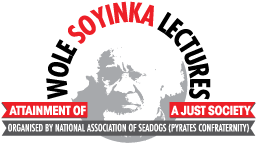
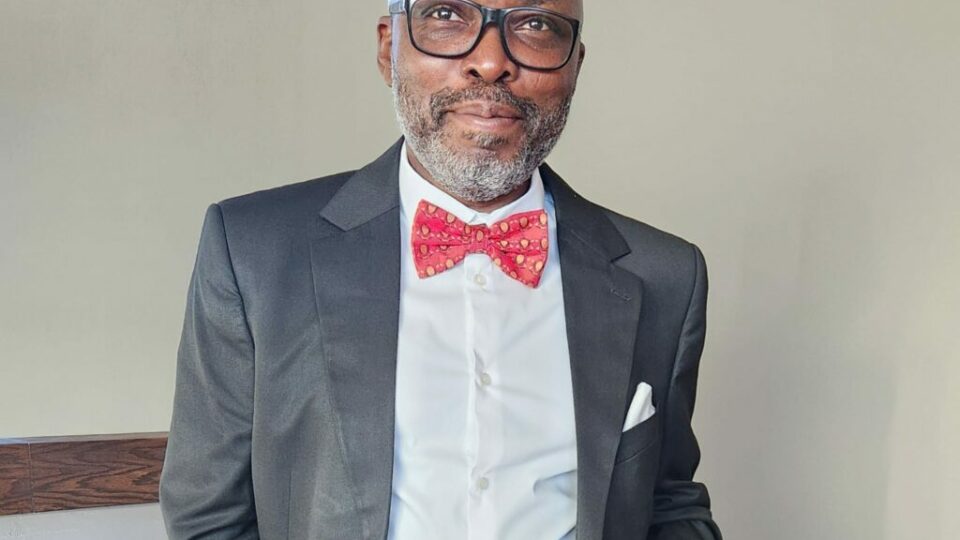
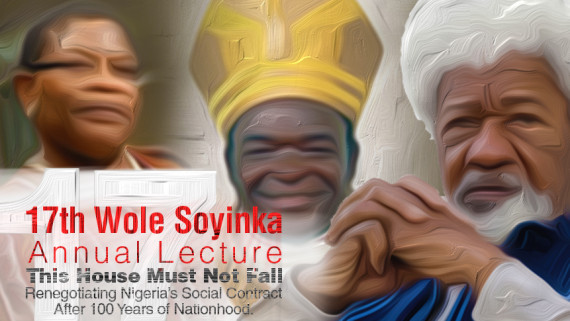
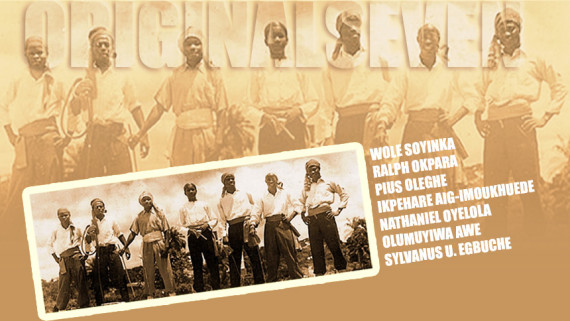
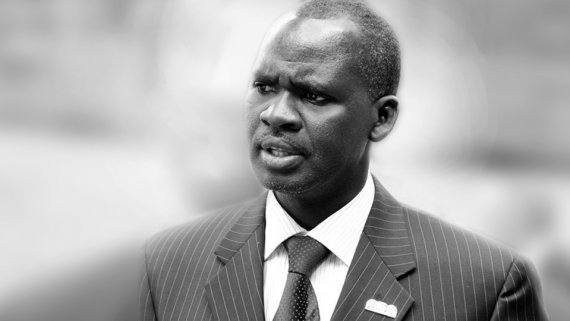
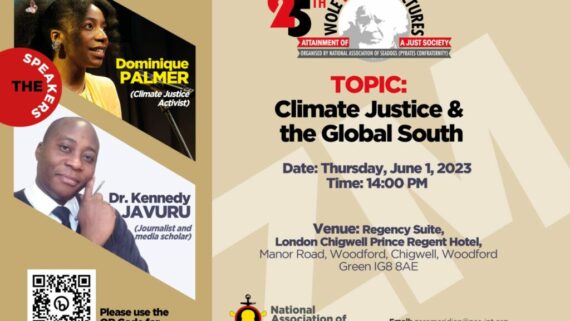
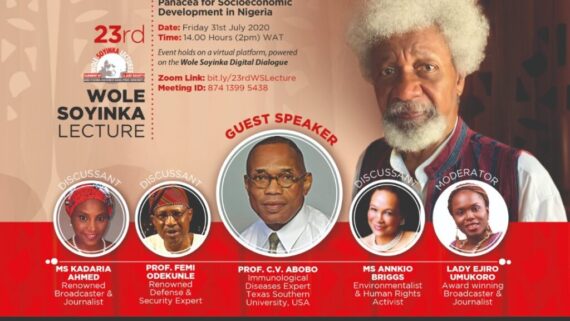
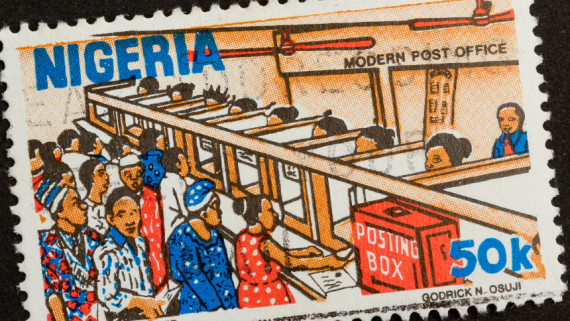
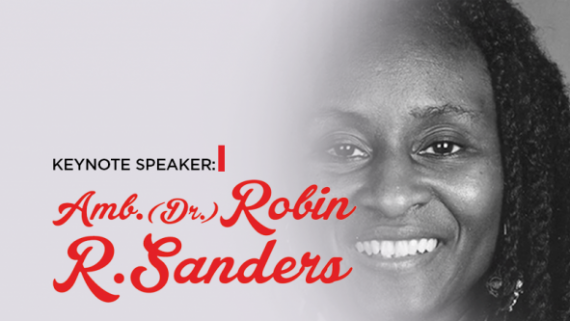
Comments
Comments are closed.